04.06.15
Rail freight sector still has a lot to learn – RFG Conference
Rail freight performance is expected to continue growing at apace in CP5, but the industry must work much more collaboratively to solve and overcome potential pitfalls to growth, delegates were told at yesterday’s 23rd Annual Rail Freight Group Conference.
In summing up, Lord Berkeley, chairman of the RFG and a member of RTM’s editorial board, said he believes there has been “enormous improvement” in how the industry works together and that he feels the new government is committed to rail freight.
During the Conference – which RTM will provide full coverage of in the June/July edition of the magazine – delegates heard from Paul McMahon, Network Rail’s director of freight, who said: “We need to emphasise the critical role rail freight has for British businesses.”
The audience of senior freight figures also heard from two customers: Lafarge Tarmac and Drax Power. During their presentations they both noted the “massive investment” and “improvement” in the sector. But also touched on areas where improvements were still needed.
David McClelland, regional director at Lafarge Tarmac, said that in 2013 his company could have moved 1.5 million more tonnes by rail but it just wasn’t possible coming out of the poor economic climate.
He added that Lafarge would like to see the sector offer more wagons, and there are big questions still unanswered over track access charges. “We would like to invest in three more sets of wagons but we’re concerned about the return on that investment. We would like to see track access charges, potentially, fixed for 10 years for every new wagon set,” he said.
“We’ve seen fantastic improvement in the last 12-18 months, but now is the time to take a step-change forward and see if we can speed-up the rate of change because the rate of growth going forward is going to outstrip what we’re delivering now if we don’t improve the speed and capability across the industry.”
Drax Power’s head of supply chain, Graham Backhouse, stated that there needs to be greater freight capacity on key routes, which has to be offset with passengers. He also wants to see the issue of average freight train speeds addressed.
“We built our wagons and put them through all the onerous tests to run them on the network. One of the things was can it run at 60mph when fully loaded with 25 wagons behind a locomotive. It passed those tests. But on average they are running at 25mph. We need to change that,” he said.
Backhouse also wants to see a faster process to plan and secure paths adopted. “In terms of performance Network Rail and the FOCs have been delivering real improvement, but in terms of what we need from the industry going forward is more capacity while driving a faster process,” he said.
The audience also heard from Clare Moriarty, director general of the Department for Transport’s Rail Executive, who said that during the recent contingency planning in relation to the now suspended Network Rail strikes “rail freight was a key consideration”.
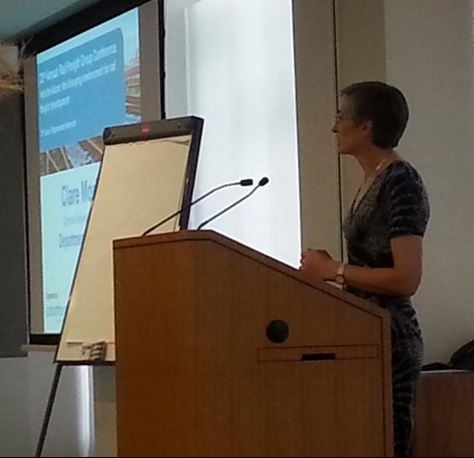
She added that Britain now has one of the most dynamic rail freight markets in Europe, with the success since privatisation being “remarkable”.
“The development of a high-speed line between London and the north will be important to passenger services and freight alike. It will allow us to reorganise and improve commuter routes across the route, but provide additional freight capacity due to latent capacity being freed up on the West Coast Main Line,” said Moriarty.
She said the RFG has estimated that providing additional freight capacity on railways could save some 500,000 tonnes of carbon dioxide per year by removing 200 trucks an hour, which would otherwise be added to the M40, M1 and parallel A-roads.
“The importance of benefits of rail freight are clear: it can help reduce congestion on the roads, is significantly safer and is less polluting than road haulage and it can deliver very reliably,” said Moriarty, adding: “HS2 will provide a chance to improve freight capacity, while providing a great modal shift from road to rail.
“In CP5, forecast freight growth is even greater than forecast passenger growth, and the government is looking to respond accordingly to identify what needs to be done to realise that growth and remove barriers.”
Delegates also heard from Highways England CEO Graham Dalton about England's strategic road network, and how it will need to integrate with rail going forward.
Anna Walker, chair of the Office of Rail and Road (ORR), discussed how the role of the ORR in relation to Highways England is different to that with Network Rail.
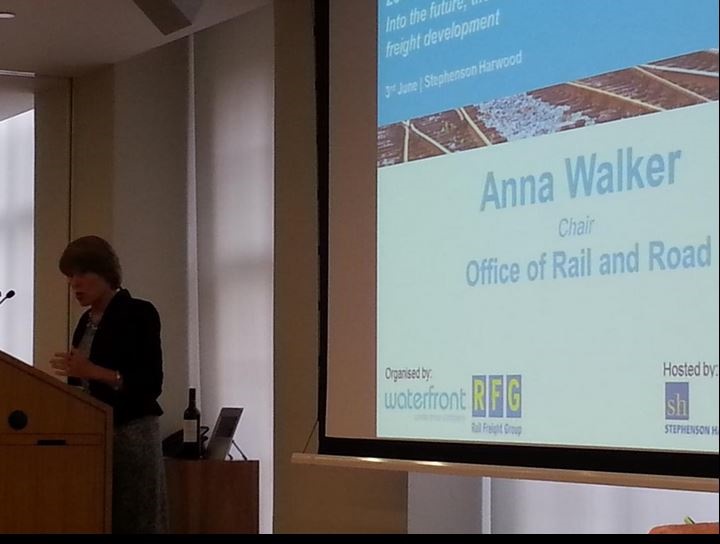
But she added that the objective is to “secure improved performance and value for money from the strategic road network”, and is carrying out a consultation on the new obligations, which closes on 19 June.
Walker says the new powers will provide an opportunity to develop a better understanding for both road and rail in a highly competitive sector. She also noted that the rail freight sector, which has future growth predicted at 4% per annum, is supported both by government and the ORR.
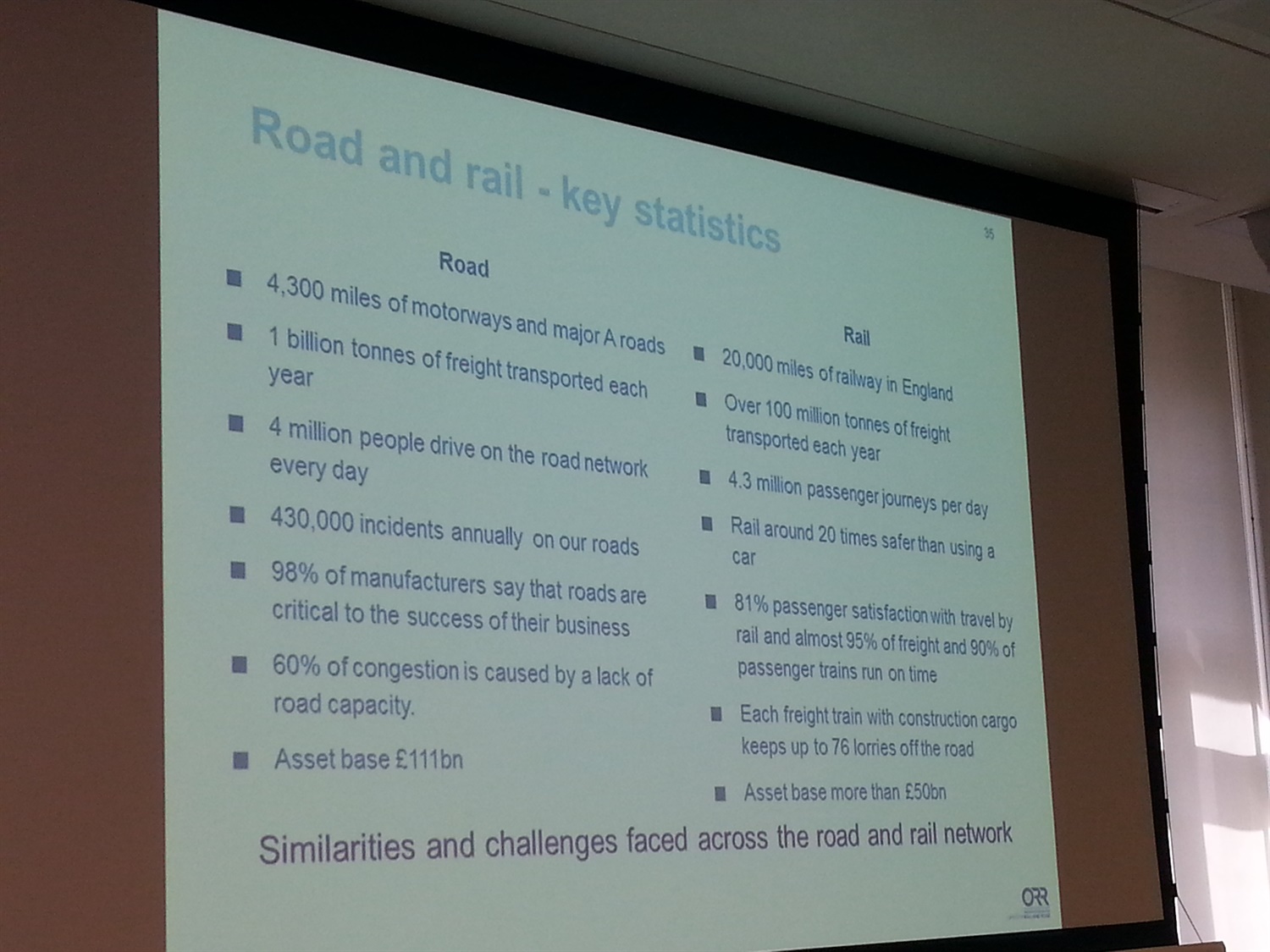
In a highly entertaining presentation, Richard Lockett, head of cross acceptance unit at the European Railway Agency (ERA), said that rail can be more competitive if it follows the example of road and aviation, and improves interoperability.
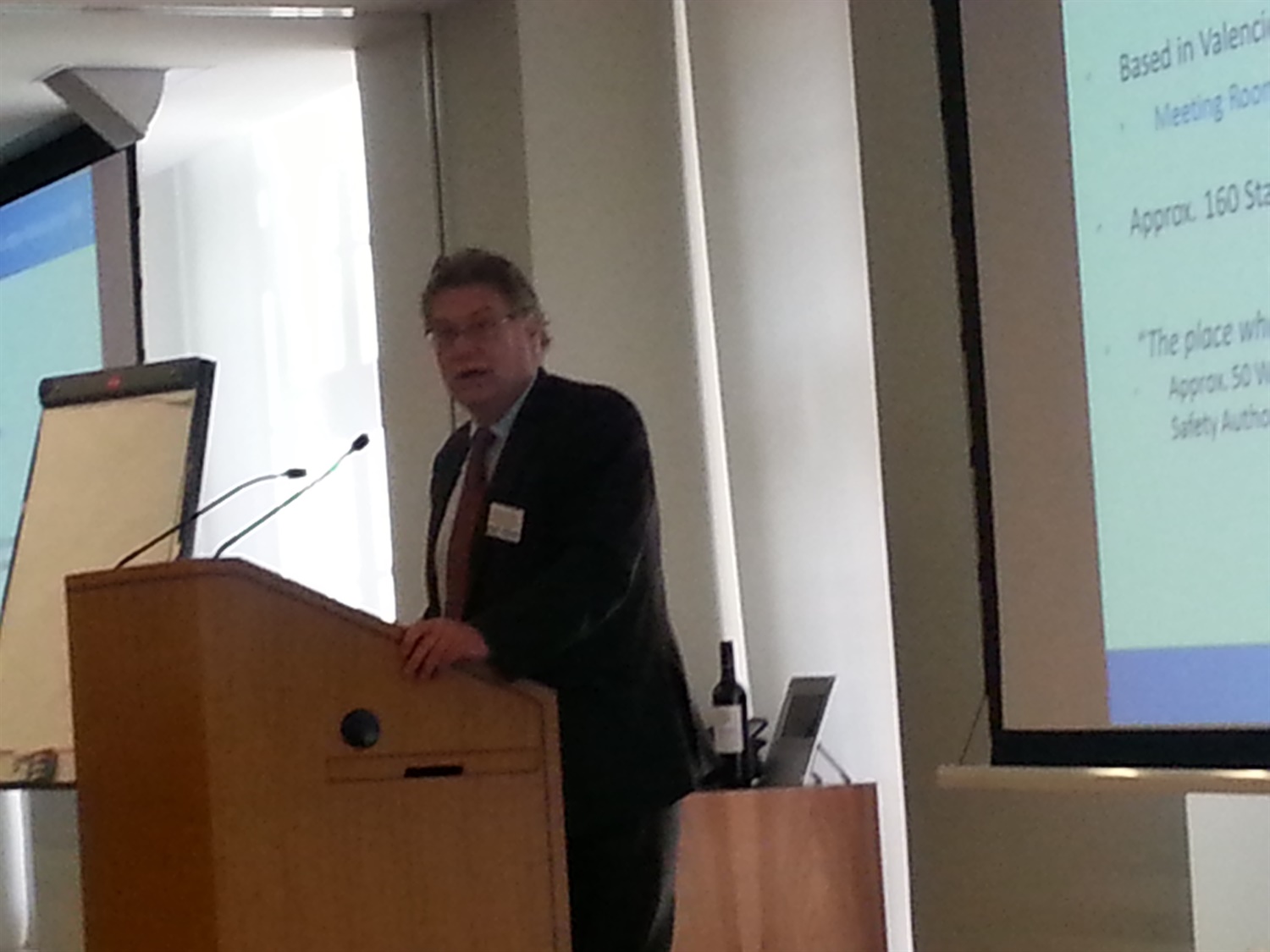
Lockett added that ERA aims to improve the competitive position of the rail sector, but the right industry support is needed to achieve this. He added that there are great success stories within UK rail, with the country being ta the top of the class for safety, but much more could be done if it joined the single European rail network.
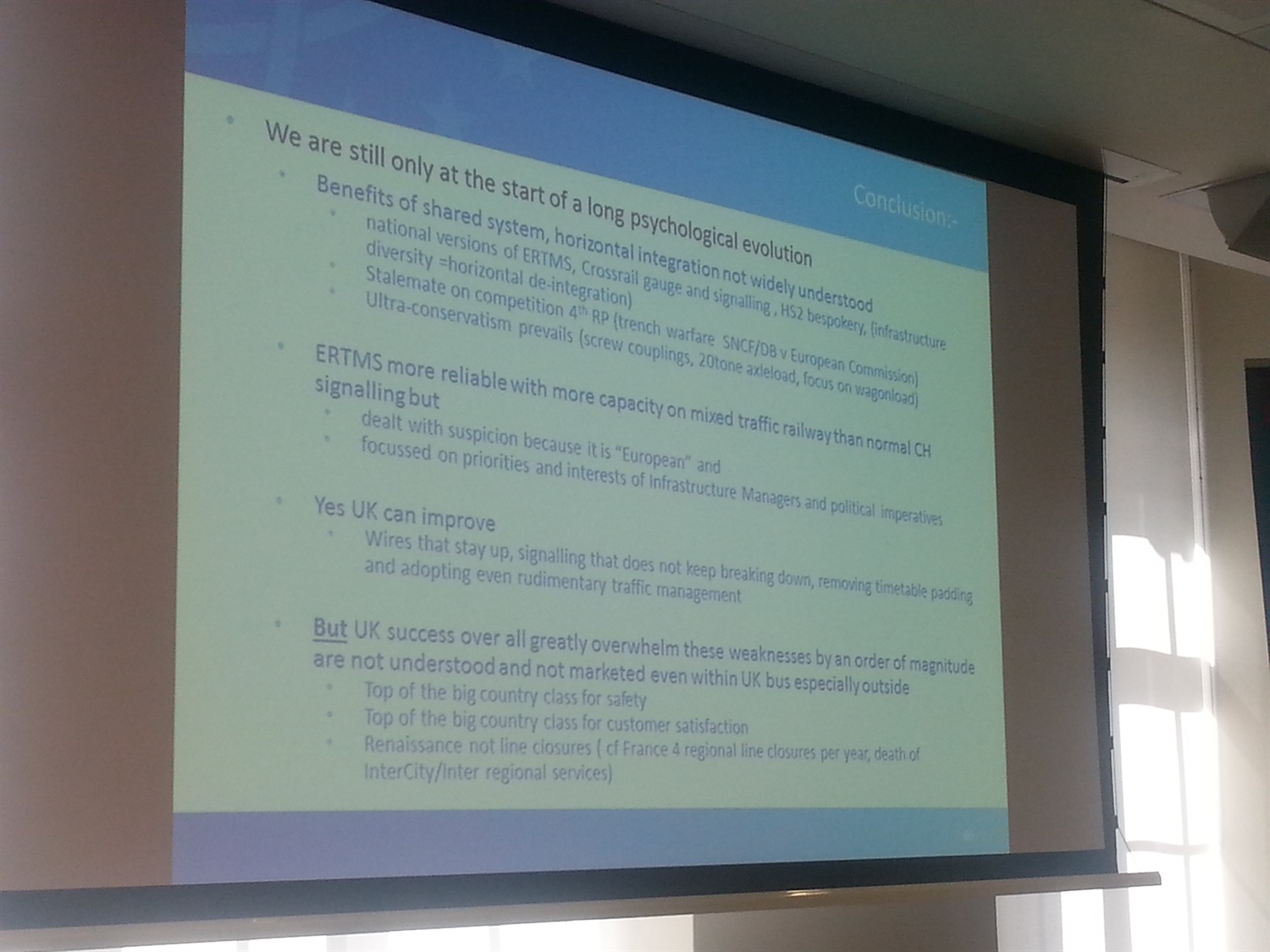
What RTM will take away from this conference is a comment made by Lord Berkeley: “The industry has a lot to learn from each other.”
Full coverage of the 23rd Annual Rail Freight Group Conference will be in the June/July edition of RTM.